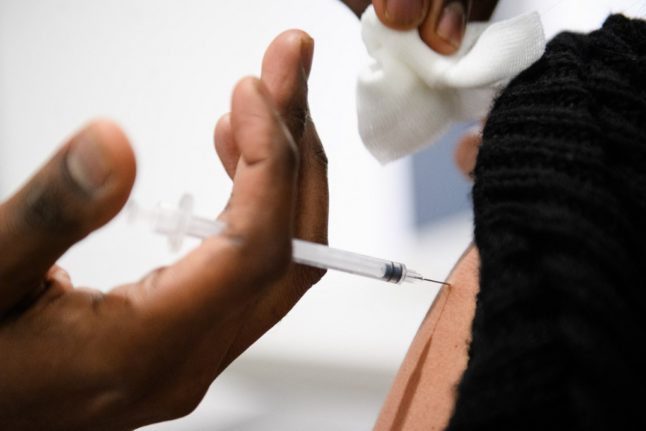After a 40 percent rise in Covid-19 cases in the last week, the French Health ministry is calling all eligible people – including over 60s and those health conditions – to receive their second booster (fourth dose) of the vaccine.
“It is necessary to redouble our efforts to protect vulnerable people, this is done through vaccination and this campaign of second boosters is absolutely necessary,” said the ministry of health.
The Covid incidence rate is increasing in more than 50 départements across France. Currently, there are an average of 50,000 positive tests per day, which has also been accompanied by an increase in hospitalisations.
“This is very clearly a reprisal of the epidemic linked to the arrival of new variants of the Omicron family, which are called BA4 BA5,” said infectious disease specialist Anne-Claude Crémieux to Franceinfo. Crémieux added that these variants are faster-spreading.
Therefore, the government is calling on vulnerable people to take their second booster dose (the fourth dose of the vaccine).
So far, only a quarter of eligible people have taken their second booster dose, with an average rate of 25,000 to 30,000 injections per day for the past two months.
“This is not enough, and it is not going fast enough,” urged the Ministry of Health on Tuesday.
The Haute autorité de santé also recently released its recommendation for a vaccination campaign to give a second Covid vaccine booster shot for the wider population, starting in October.
The HAS recommendation advises starting France’s annual flu vaccine campaign in mid October (mid September for the French overseas territory of Mayotte) and combining it with a campaign to give a second Covid vaccine booster ahead of a possible new wave of Covid in the winter.
At present although the great majority of the French adult population is vaccinated against Covid with two doses and a booster, a second booster is only recommended for people in high risk groups such as the over 60s and those with long-term health conditions.
The HAS recommendation reads: “At the end of May, the HAS recommended preparing for a booster shot campaign for people most at risk of developing the most severe forms of Covid, and envisaged a booster shot for healthcare workers.
“Those parts of the population most at risk are also those for whom the seasonal flu vaccination is recommended, therefore for logistical reasons the HAS recommends combining the two campaigns.”
La HAS recommande de maintenir à mi-octobre le lancement de la vaccination contre la #grippe.
Et comme l'an dernier, elle recommande de la "coupler" avec une probable vaccination de rappel contre le #Covid19… s'il est possible d'attendre mi-octobre.https://t.co/TtVlLmXb61 pic.twitter.com/pMnWvomNbf
— Nicolas Berrod (@nicolasberrod) June 17, 2022
The flu campaign is advised to go ahead as normal, starting in mid-October.
The HAS only makes recommendations, the details of policy are up to the government, but it usually follows HAS advice.
The usual seasonal flu campaign in France offers a vaccine for free to anyone in a high risk group, which includes the elderly, people with underling health conditions, healthcare workers and pregnant women – full details HERE on how to get the vaccine.
Those who don’t fit into those categories can still access the vaccine, but must pay for it – €6-€10 for the vaccine and the standard appointment charge to have it administered by a doctor (€25, with 70 percent reimbursed for those with a carte vitale).
The flu vaccine is available from family doctors, midwives and participating pharmacies once the campaign officially launches.
The Covid vaccine is also available from family doctors, midwives and pharmacies, but most of the vaccine centres set up in 2021 have now been closed down.
There is currently no suggestion a return of the health pass, so a second booster shot would be entirely voluntary, but the government has the power to re-introduce such measures if a major wave of Covid hits France over the autumn and winter.
Currently, there are no plans to lower the age minimum (as of now set at 60 years old) for receiving a second booster. Health authorities believe that the immune response after a first booster “continues to sufficiently protect” younger adults.



 Please whitelist us to continue reading.
Please whitelist us to continue reading.
Member comments